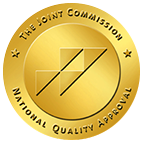




People in recovery from Alcohol Use Disorder (AUD) refer to alcohol as “cunning, baffling, and powerful”. It is an insidious and dangerous toxin, yet we are conditioned to view it as fun, relaxing, and completely normal to indulge in. Alcohol is a drug, and like most drugs, it affects everyone a little bit differently.
For those who live with addiction, the end results of consistent alcohol misuse or abuse tend to look similar; they face life-altering consequences in regards to physical and behavioral health, severe relationship issues, criminal behavior, and all too often, death.
If you’ve ever been intoxicated or in close proximity to intoxicated people, you’ve likely witnessed first-hand how alcohol changes a person’s mood and behavior.
Alcohol is sometimes referred to as a “social lubricant”, because it lowers inhibitions and makes it easier to be in uncomfortable social situations. Culturally, alcohol use is not only acceptable, but heartily encouraged via enticing advertising, subtle and not so subtle peer pressure, and its abundant availability almost anywhere you go.
Many people who use or abuse alcohol become angry, and that anger can lead to violence. It isn’t always a simple linear relationship though.
In many situations, yes, the perpetrator of violence has abused alcohol, but in some cases, the victim abuses alcohol, often as a means of coping with the trauma of violence or abuse.
Some people are angry before they drink alcohol, and that anger gets exacerbated and leads to violence. In other situations, alcohol is the main catalyst for anger and violence.
Alcohol, anger, and violence have a tricky relationship with one another, and here we will examine how they all come together.
We all feel angry sometimes, it is an absolutely normal and potentially healthy emotion.
Anger about a specific event can be the fuel necessary to activate change and get out of unhealthy situations.
Anger towards a loved one can ultimately lead to deeper understanding within the relationship, for both parties.
Feeling angry when someone cuts you off on a busy freeway is normal. It’s perfectly acceptable to feel anger when someone treats you or your loved one with unfairness or cruelty.
What isn’t normal or acceptable, is flying into a fit of road rage, thereby creating danger to yourself and others, or inflicting violence or purposeful emotional distress on the person who angered you or your loved one.
Emotions themselves are harmless, even intensely uncomfortable ones such as anger, grief, or hopelessness. What gives emotions their power is how we process them, the stories we tell ourselves about them, and most importantly, how we react to them.
Anger is sometimes referred to as a secondary emotion. What this means is, we often use anger as a shield to protect us from feeling the vulnerability of other emotions, such as fear, rejection, frustration, pain, and humiliation.
If your friend fails to invite you to a party, you probably feel pretty angry. This is natural and understandable, but if you really think about it, your initial emotions were most likely feeling hurt and rejected.
Anger is a reasonable response in many situations, but it is also the safest emotion to hide behind; it can be powerful, and make you feel stronger than you would otherwise. Which can be potentially destructive and dangerous when alcohol becomes involved.
Anger is the go-to feeling for most people because it’s outward-directed—angrily blaming others can feel deliciously sanctimonious. But often it’s only the tip of the iceberg, and if you look beneath the surface, you’ll glimpse submerged feelings you either weren’t aware of or didn’t want to show: fear, helplessness, envy, loneliness, insecurity. And if you can tolerate these deeper feelings long enough to understand them and listen to what they’re telling you, you’ll not only manage your anger in more productive ways, you also won’t be so angry all the time.
― Lori Gottlieb, Maybe You Should Talk to Someone: A Therapist, Her Therapist, and Our Lives Revealed
Alcohol has a myriad of effects on our physiological senses. It affects both the brain and body in countless ways. One of the defining symptoms of alcohol use is lowered inhibitions, and those lowered inhibitions can become dangerous and volatile when a person has anger seething beneath the surface.
Alcohol has the tendency to enhance whatever emotions you’re feeling when you imbibe. And this is what makes it such a tricky substance.
If you drink when you’re celebrating, it can make you feel even more celebratory and excited. If you drink when you feel blue, you might start crying. And if you drink when you’re feeling angry, that anger may bubble up to the surface and come out in unhealthy ways.
Anger can make it hard to think straight, and so does alcohol. When you put the two together the likelihood of regrettable decisions increases tenfold.
There are several hypotheses about the mechanisms of action that leads to alcohol-fueled anger:

Disinhibition while drinking can lead to people engaging in behaviors they normally wouldn’t, such as aggression. It weakens the area of the brain that controls impulses and urges.

Alcohol myopia is the idea that alcohol narrows your focus, a bit like a camera lens. This can lead to misconceptions; an innocent bump on the street, for example, can be misinterpreted as a hostile act.

Cognitive function impairment is an unfortunate effect of alcohol use, making it difficult to problem-solve, make good decisions, and control anger.

Consideration of consequences. People who are more focused on the here-and-now tend to act more aggressively when they drink alcohol than those who think more carefully about the consequences of their actions.
Alcohol plays a significant role in violent incidents all over the world. In fact, alcohol consumption plays a part in nearly half of all violent crimes and sexual assaults. Keep in mind, sometimes it is the victim who is under the influence.
The association between alcohol and aggression or violence is complex, but there is undoubtedly a connection. Alcohol may not be the direct cause of violence, but it definitely compounds angry and aggressive behavior, which can lead to violence.
At least half of the sexual assaults which occur between acquaintances involve alcohol, either by the perpetrator, the victim, or most commonly, both.
Alcohol myopia can lead the victim to miss social cues that they may normally associate with risk, making them impervious to the anxiety and fear that would normally prompt them to get out of the situation before it became violent.
Alcohol not only lowers inhibitions but also the ability to be assertive. This can make it difficult for the victim to exit the situation they find themselves in, even when they wish to do so.
If a victim was under the influence of alcohol during a sexual assault, they are more likely to feel guilty or responsible for their own victimization. This can lead to more drinking to mask those feelings, which can lead to further sexual assault in the future.
This illustrates how alcohol can lead to violence, even when the perpetrator is not the one drinking.
Intimate partner violence refers to behavior between partners that causes physical, sexual, or psychological harm to one or both partners in the relationship.
There is an extremely close relationship between alcohol and intimate partner violence.
Alcohol is not necessarily the cause of intimate partner violence, but alcohol use exacerbates both the rate of occurrence and severity of the violence.
“Child maltreatment” is defined as any form of physical, emotional, or sexual abuse, as well negligence or exploitation that results in actual or potential harm to the child’s health and/or well-being.
Alcohol is both a risk factor and a consequence of childhood abuse. You’ve heard the saying that “alcoholism runs in families”, and you can see here that it is not as simple as genetic predisposition.
People who have suffered through abuse and trauma are more likely to suffer from substance abuse issues than those who have not, and those who suffer from substance abuse issues are more likely to commit acts of violence, and the cycle tragically continues.
People who suffer from Post-Traumatic Stress Disorder (PTSD) are more likely to abuse alcohol, and people who have issues with drinking are more likely to have PTSD.
Some people have drinking problems before they suffer the event (or events) that lead to PTSD. Some people start drinking after the event(s) take place.
Either way, abusing alcohol on top of living with PTSD makes both problems worse, and exponentially increases a person’s likelihood of either inflicting or suffering from violence.
Domestic abuse can lead to PTSD, and alcohol can be very appealing as a way of coping with the pain. There is constant stress when living in an abusive situation, and alcohol is a depressant (at least temporarily), which can lower anxiety and stress levels.
Unfortunately, the more you drink, the more you need to drink in order to achieve those sedative and relaxing effects. This is how dependence and addiction develop.
Many people who abuse their partners blame their alcohol use for their violence. They promise time and time again that “it will never happen again” because it was “just the alcohol”. They will also try and shift the blame onto their partner; “She makes me so mad I absolutely need a drink”.
The correlation between alcohol and domestic abuse is strong, but the connections are not always clear and simple. Sometimes the perpetrator drinks, sometimes the victim, and all too often, both.
Scenarios that involve alcohol, abuse, and trauma tend to repeat themselves, looping into a cycle that continues on, sometimes for generations.
Anger varies in intensity from irritation to fury and rage. The instinctive way to express anger is through some sort of aggression. This is totally normal and biologically productive response. Some anger is necessary for our survival.
However, we can’t go around lashing out and yelling at people all the time, and we certainly can’t express our anger with violence.
It’s necessary to find healthy ways of expressing anger. And anger does need to be expressed. Unprocessed and unexpressed anger can lead to maladaptive techniques that are even more harmful, such as abusing alcohol and/or violence.
You can’t avoid anger, simply get rid of it, or ignore it.
Here are some relaxation tips for managing anger in healthy ways:

Breathe deeply, all the way from your belly. Inhale to a count of 7, hold it for a count of 5, and exhale to a count of 7.

Repeat a word or phrase while you’re breathing deeply. Repeat, “I am safe”, or “Everything is ok” for several minutes.

Visualize an image that relaxes you. A scenic beach, a loved one, or even something from your imagination. Breathe deeply and go to that place that relaxes you in your mind.

Exercise! It doesn’t even need to be strenuous exercise. In fact, consistent yoga or stretching can be wonderful as an anger management tool. It teaches you how to breathe deeply, and relax all of your muscles, which can help you to control the impulse to act aggressively when you feel angry.
If you or a loved one are suffering from uncontrollable anger, and you’re past the point of these simple
exercises being of any help, especially if alcohol is a factor, please reach out for help.
Life can be difficult and overwhelming in the best of times, and right now the world is especially
tumultuous. There is nothing wrong with seeking out assistance to help you or your loved one with anger that just doesn’t seem to subside.
Call your doctor or a therapist. If that’s not an option, reach out to a pastor or a trusted friend. Find some help before anger leads to consequences that might not be easy to come back from. You and your loved ones deserve to feel healthy and safe.
Alcohol can seem like a great way to relieve stress until it becomes a problem. And people who are using alcohol as a means of coping with uncomfortable emotions, especially anger, are likely to find themselves with an increase of problems rather than relief.
If you or someone you care for are struggling with alcohol, reach out for help. Do so as soon as possible, because the longer unhealthy drinking habits continue, the more likely it is that dependence and addiction will develop.
If you (or your loved one) are lashing out with anger and/or violence as a result of alcohol use, please, seek safety and assistance right away. The sooner you address the drinking, the sooner you can address the underlying anger. Don’t wait until a tragedy occurs to reach out for help. You are not alone, and there is help available.
From all of us at New Method Wellness co-occurring treatment center, we wish you peace and serenity in knowing that you or your loved one will get the necessary help.
ACCREDITED BY:

"*" indicates required fields
LOCATION
QUICK LINKS
TREATMENT PROGRAMS
RESOURCES
Privacy Policy | Sitemap – © 2025 New Method Wellness
New Method Wellness Is Not Affiliated With, Employed By, Or In Contract With Any Treatment Centers Or Providers.
We Do Not Accept Or Pay Any Fees Or Payments For Behavioral Health Referrals.
We Are Here To Support Families. This Is Our Focus.
"*" indicates required fields
"*" indicates required fields